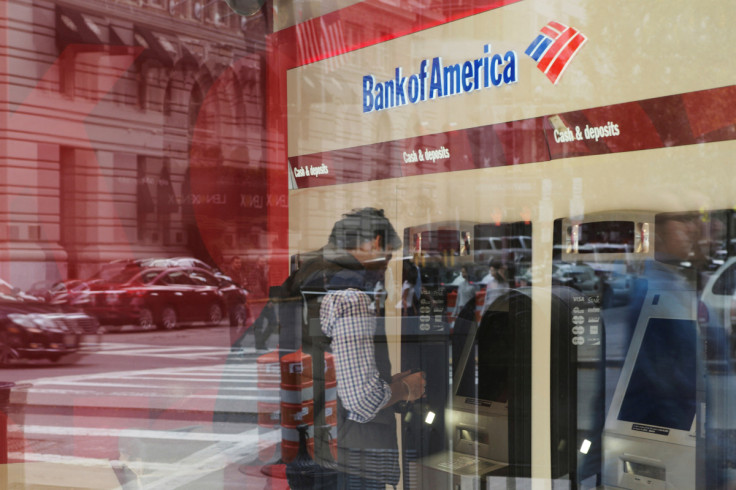Bank Of America Beats Profit Estimates On Gains From Higher Interest Rates

Bank of America Corp on Monday reported a smaller-than-feared 9% drop in quarterly profit, as its interest income was bolstered by a string of rate hikes that helped offset weakness in its investment banking division.
The U.S. Federal Reserve's aggressive move to tighten monetary policy this year in the face of stubborn inflation has given banks more room to raise their prime lending rates, sparking a revival in their interest income, which for years was stagnant due to near-zero rates.
"BofA benefited from a higher interest rate environment in both the yields on the newly issued loans and just the growth of number of depositors," said Siddharth Singhai, chief investment officer of New York-based investment firm Ironhold Capital.
"This is a direct result of higher interest rate offered by the banks looking very attractive compared to other risk assets."
Bank of America holds a large base of consumer deposits, compared with its main rivals, making it more sensitive to any changes in interest rates. Its net interest income jumped 24% in the third quarter.
JPMorgan Chase & Co Citigroup Inc, and Wells Fargo & Co also saw their net interest income rise in the same period.
Excluding items, BofA earned 81 cents per share for the quarter ended Sept. 30, beating the average analyst estimate of 77 cents per share, according to Refinitiv IBES data.
Shares of BofA, down about 29% so far this year, rose 3.1% in trading before the bell.
"Our U.S. consumer clients remained resilient with strong, although slower growing, spending levels and still maintained elevated deposit amounts," Chief Executive Officer Brian Moynihan said.
The second-largest U.S. bank's consumer business reported a 12% jump in revenue, helped by higher balances and a rise in interest rates and a 9% jump in combined credit and debit card spend.
The bank, however, added $378 million to its loan-loss reserves as it braces for a weakening economy. That compares with a reserve release of $1.1 billion a year earlier.
Its global wealth and investment management segment reported a 2% rise in revenue as average loans and leases grew in the quarter.
Growing fears of an economic slowdown impaired global dealmaking, which retreated from records set last year and saw investment-banking units struggle amid a dearth of appetite for public listings and buyouts. Investment banking fees at BofA fell 46%.
Chief Financial Officer Alastair Borthwick said on a media call that the bank was happy with its headcount for now and was not planning to cut jobs in the investment banking unit despite a downturn in its underwriting business.
The bank's leveraged loan losses were lower in the third quarter than in the second, Borthwick said.
Peer Citi also wrote down $110 million on leveraged loans in the third quarter, down from $126 million in the previous quarter.
Bank of America managed to retain its top spot in global leveraged finance this year even as deal volumes in the sector shrank by a quarter to $1.4 trillion, according to data from Dealogic.
It was among the consortium of lenders that took $700 million of losses financing the buyout of Citrix Systems Inc as well as canceled efforts to sell debt that financed Apollo Global management Inc's deal to buy assets from Lumen Technologies Inc.
Graphic: Global leveraged finance markets -
© Copyright Thomson Reuters 2024. All rights reserved.





















